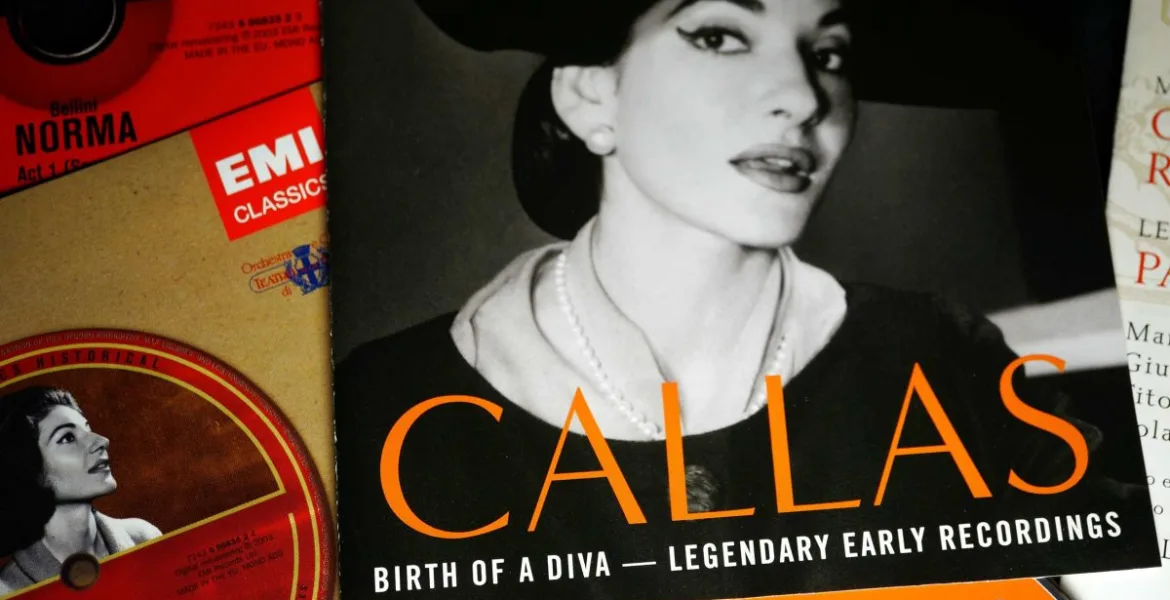A museum dedicated to the legendary Greek opera singer Maria Callas, located in the heart of Athens, will open its doors later this year.
A museum dedicated to the legendary Greek opera singer Maria Callas, located in the heart of Athens, will open its doors later this year.
Located in the heart of the Greek capital, in a beautiful neoclassical building on Mitropoleos Street, the new Maria Callas Museum will present priceless historical artifacts, including photographs and portraits, rare live recordings, and a unique collection of records and personal items belonging to the legendary Greek opera star.
The newly established Museum – the first dedicated to Maria Callas – was initially scheduled to open in 2019 but was delayed after the COVID-19 pandemic. Since then, the 1,070-square-meter building, owned by the Municipality of Athens, has undergone extensive refurbishment based on an updated study and design by Andromache Gazi, an associate professor of museology at Athens’ Panteion University.
It is anticipated that the Museum will finally open its doors to the public later this year.
The idea for a museum celebrating the life and artistic career of Maria Callas took shape over a decade ago, inspired by a collection of her personal belongings that went up for auction in Paris. Speaking to Kathimerini last year, Technopolis CEO Kostis Bitzanis said: “Once the idea of housing the museum in one of the old warehouses at the Technopolis gasworks complex [in Gazi] was rejected, this municipal-owned building [on Mitropoleos Street] was located and the architectural studies could commence.”
With a budget of over a million euros and with the dedicated support of the Maria Callas Greek Society, the new Museum has been designed according to the latest museological standards. It will house around 500 exhibits, both physical and digital. Spread out over two floors and four separate rooms, the exhibition will tell the story of Callas’ remarkable yet tragic life, shedding light on her personality, her most renowned operatic roles, including “Norma,” “Tosca,” and Violeta in Verdi’s “La Traviata,” and the various individuals who served as her greatest inspiration.
Among the many personal items included in the display are costumes and props from some of the singer’s most iconic performances, honorary medals, photos and portraits, and an extensive collection of books and musical scores with her handwritten notes. Much of the exhibition has been donated to the Museum from dozens of private collections recently, including 50 objects from the personal archives of Konstantinos Pilarinos, President of the Maria Callas Scholarship Association, and his wife, Viktoria.
Visitors will also be introduced to Callas’ vast music repertoire through speakers, headsets, and a series of digital displays throughout the Museum.
Maria Callas: An Enduring Icon
Maria Callas (1923-1977) was a renowned Greek-American soprano, widely regarded as one of the greatest opera singers of the 20th century. Born in New York City to Greek parents, she moved to Greece and began her opera career in the 1940s. Callas was celebrated for her extraordinary vocal range, dramatic intensity, and versatility in portraying various operatic roles.
She excelled in bel canto, Verdi, and the emotional depth and powerful stage presence marked Puccini’s operas and performances. Callas was known for her dedication to her craft and how she transformed opera by emphasizing both vocal and dramatic aspects, setting new standards for opera singers.
Her tumultuous personal life, including a high-profile affair with Greek shipping magnate Aristotle Onassis, added to her public persona. Despite a relatively short career, Maria Callas left an indelible mark on the world of opera, and her recordings and performances continue to be revered by opera enthusiasts and musicians.

